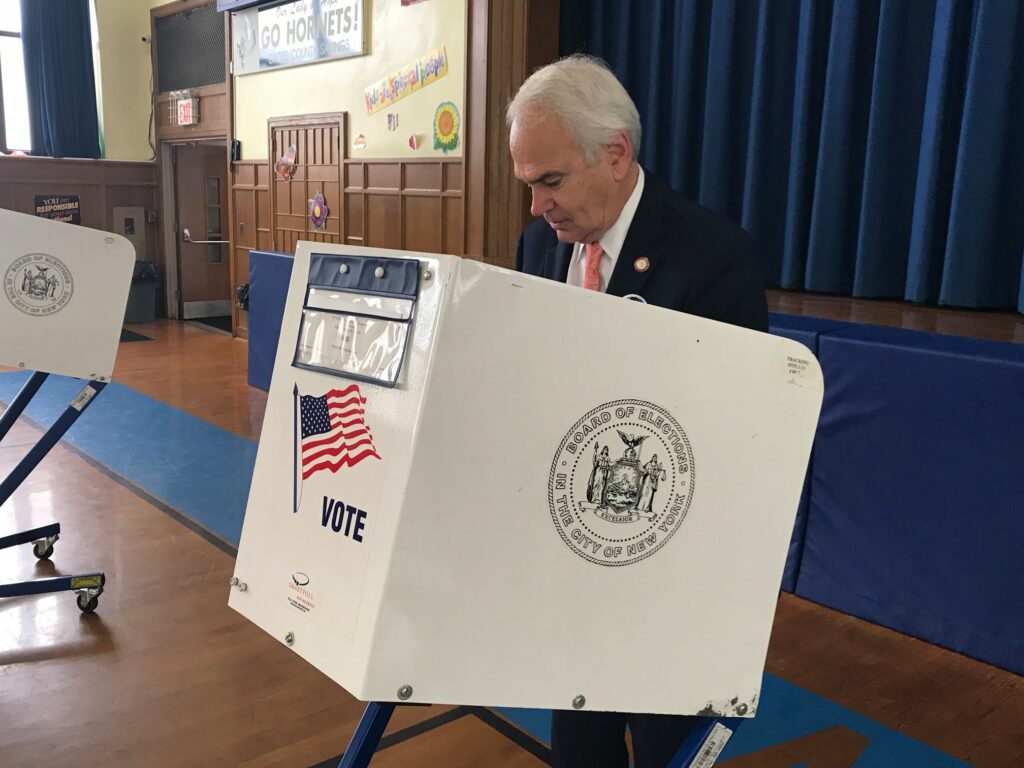In recent years, voter apathy has become a troubling trend, contributing significantly to our current political landscape. Many citizens express dissatisfaction with government policies and leadership but fail to recognize their power to enact change through civic involvement. This disengagement is particularly concerning as we move beyond a historic presidential election and head toward the pivotal municipal elections of 2025.
The results of the presidential election underscore a seismic shift in voter sentiment. President Donald Trump won in a landslide nationwide, and even traditionally blue New York State saw a significant shift toward Trump, marking the best showing for a Republican presidential candidate here since 1988. These results reveal the power of civic engagement and the potential for transformative change when citizens mobilize.
While the presidential election commanded national attention, it’s crucial to remember that next year’s local elections will have an even more immediate and profound impact on our daily lives. In 2025, we will elect our local representatives, including the Mayor, Comptroller, Public Advocate, and all 51 New York City Council seats. These positions wield significant influence over the policies and decisions directly affecting our communities.
City Hall holds more sway over our lives than the White House. It is here that decisions are made regarding tax rates, public safety, infrastructure, and community resources. City Hall determines how to allocate the city’s $111 billion budget, which affects everything from policing to sanitation and education. They make choices about sanctuary city laws, handling migrants, and addressing issues like homelessness and public safety.
The impact of the Mayor and City Council on our lives is immense. They ensure—or fail to ensure—that our local precincts have enough police officers, our firehouses are adequately staffed, and our sanitation services keep our neighborhoods clean. They decide whether our parks are preserved and whether our streets are safe. Yet, despite their significant role, many citizens remain disengaged, allowing decisions to be made without their input.
This disengagement has led to what many perceive as dysfunction in City Hall. Political infighting often takes precedence over constituent needs, leaving critical issues unaddressed. A simple primary election can determine your City Council Member for four years, with only a few thousand voters out of approximately 170,000 residents making that decision. Politically active and organized groups, often from the left, wield disproportionate influence because they vote, leaving others wondering why their concerns go unheard.
Relying on social media rants post-election is not the solution to effecting change. We must shift from apathy to action, realizing that our involvement is essential to shaping the future of our communities. This means more than just voting; it means joining civic associations, attending community meetings, and making your voice heard at City Council hearings and public forums.
For nearly four decades, I volunteered my time to improve my neighborhood. I served on Community Board 5 and was President of the Juniper Park Civic Association, one of the state’s largest and most active civic organizations. I worked closely with elected officials to address pressing local issues during my tenure, sacrificing valuable time with my young kids and wife. I’m not asking for that level of commitment from the public, but our future elected officials should have it. All I am asking for is a few hours of your time.
Many of us juggle demanding schedules, but the opposition prioritizes activism, often benefiting from resources to do so. It’s time we make similar sacrifices to ensure our voices are heard. Dedicating a few hours each month to civic engagement can lead to meaningful change. Attending civic meetings, testifying at City Council hearings, and staying informed about local issues can make a real difference.
As we reflect on the presidential election’s outcome, let it serve as a reminder of the impact voters can have. On election day, we have the power to choose representatives who will truly listen and act in the best interests of our communities. By exercising our right to vote and staying engaged, we can elect leaders who prioritize public safety, fiscal responsibility, and responsive governance. This is a privilege and a responsibility we must take seriously to see change.



